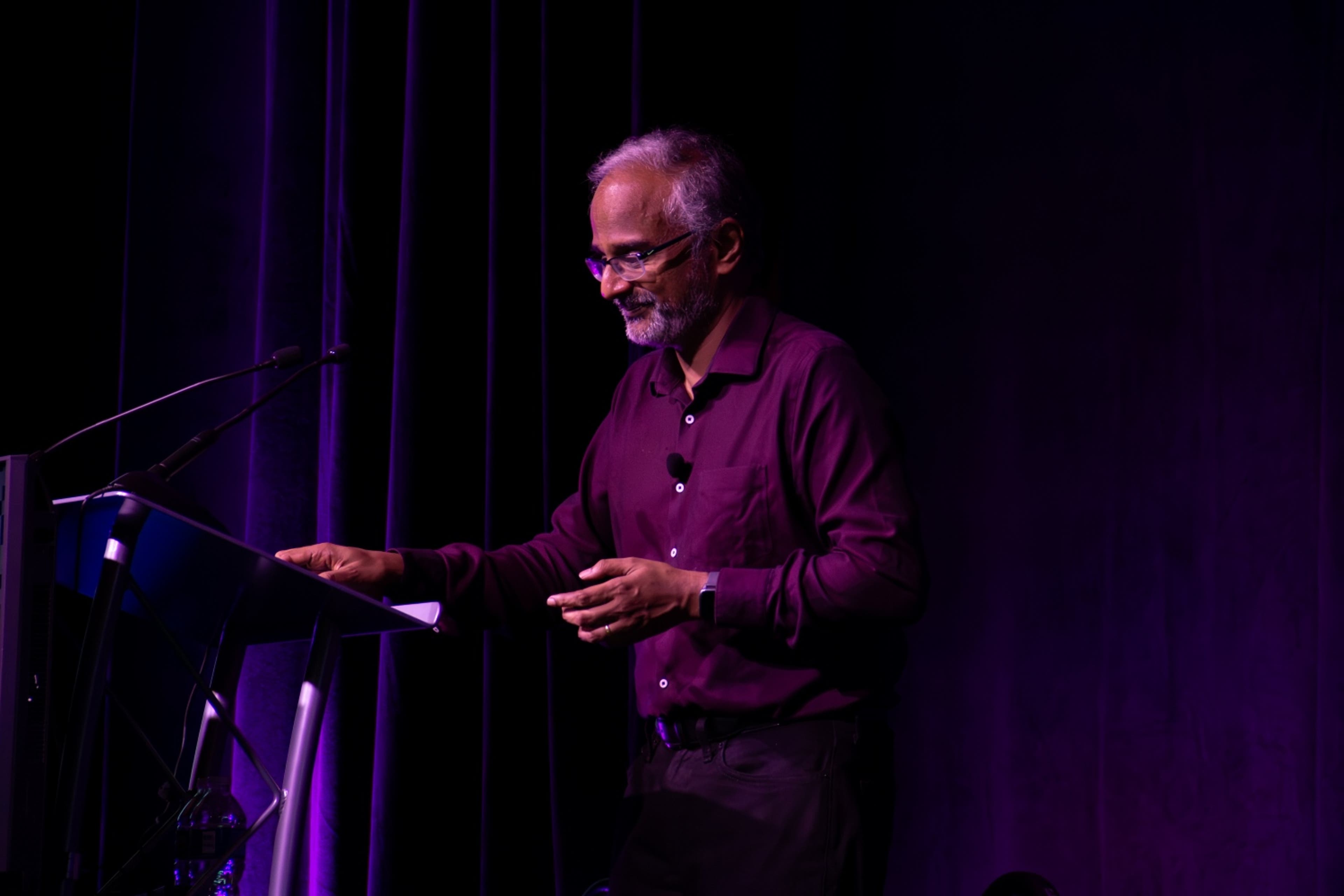The conversation on technology sovereignty is changing due in part to shifts in the artificial intelligence landscape. Broad collaboration and emphasis on AI safety has slowed while many nations shifted their focus toward competition and innovation.
Suresh Venkatasubramanian, AIGP, director of Brown University Data Science Institute's Center for Technological Responsibility, Reimagination and Redesign, highlighted the changing tides in his keynote remarks at the IAPP AI Governance Global North America 2025. Venkatasubramanian previously served as the White House Office of Science and Technology Policy Assistant Director for Science and Justice under former U.S. President Joe Biden's administration and co-authored the Blueprint for an AI Bill of Rights.
Looking back on the initial global push around AI safety measures, Venkatasubramanian said the purpose of international forums was to "try to work together on building governance and harmonizing our rules" across the globe.
U.S. President Donald Trump's position on AI, however, prioritizes innovation first, with regulation viewed as likely to block the full potential of a given AI deployment. That's been made clear through the Trump administration's AI Action Plan and its public statements at global forums, including during February's AI Action Summit.
Venkatasubramanian said the current goal of U.S. dominance in AI is a "national security imperative." He added the Trump administration will "ensure that American AI technology continues to be the gold standard worldwide, and we are the partner of choice for other foreign countries and certainly businesses as they expand their own use of AI."
The U.S. position is accelerating AI development across sectors, with Google, Meta, Microsoft and OpenAI among the companies going full steam ahead.
To press forward, some organizations are looking to adapt strategies and develop their technology stack accordingly. However, this includes selling tech sovereignty as a service, which Venkatasubramanian said raises concerns.
"Microsoft offers a sovereign cloud. Google has been offering their own sovereign cloud. And Nvidia, of course, has been talking about … how every country needs their own sovereign AI," Venkatasubramanian said. "It seems almost like an oxymoron, right? How can I be sovereign if the one operating it for me is a foreign firm?"
According to Venkatasubramanian, tech sovereignty extends beyond technology and infrastructure into culture, identity, and national policy, which means countries face trade-offs when pursuing technological independence. He said sovereignty is "a nice phrase," but its introduction to the technology space "seeks to avoid scrutiny" regarding what it will cost — in money and human values — for it to be achieved.
Though countries are working to navigate AI risks and mitigate consumer harms, some are using AI for cultural purposes. Saudi Arabia has launched Arabic-language AI systems which look to use AI to protect cultural values and New Zealand's Māori community has developed models that aim to preserve their language.
Balancing technology and culture is no easy task, especially with the rapid changes around AI. With efforts to advance innovation responsibly, Venkatasubramanian urged stakeholders to reframe the conversation on tech cooperation for a more holistic approach that weighs innovation, safety and cultural sensitivity.
Lexie White is a staff writer for the IAPP.

